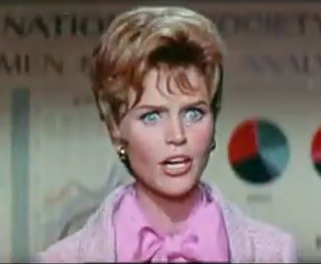 |
| The real scandal may have nothing to do with them. |
I love Carole Lombard, Paris, quick witty dialogue, and light fluffy comedies. When I saw Fools for Scandal (1938) come across my Facebook feed, promising all of the above, I thought I had a sure winner. DVR set to record. Unfortunately this movie fell flat. Very very flat. Old champagne flat. I'm usually much easier to please. (Yes, I see messages in movies, but that does not interfere with my enjoyment of the films.)
What went wrong? Maybe my expectations were too high. Maybe it was the lack of chemistry between Lombard and her co-star Fernand Gravet (or the fact I was expecting Robert Montgomery--I swear the pic looked just like him--and got Gravet). Then there was that awkward attempt mid-movie to become a musical although no characters had spontaneously burst into song up to nor following that point.
To stay on the sunny side of the street, I did find one interesting nugget in my viewing. For being made after strict enforcement of the Hays Code, the movie is rather suggestive regarding two of the female characters in the cast: Lady Paula Malverton (Isabel Jeans) and Jill (Marcia Ralston). In hindsight, the foreshadowing is present before the camera first presents the ladies together. The main characters, Kay (Lombard) and Rene (Gravet), walk into the restaurant where Lady Paula is giving a party, and this is the act on stage:
Notice the woman dressed in traditional male attire
among the other women who are dressed in beaded gowns.
At first glance of the table, Jill appears to be a male character. Her hair is slicked back and her outfit is distinctly masculine in nature. Lady Paula discusses how she has taken Jill to Paris and is paying for her French lessons.
Jill's style remains masculine throughout the picture. At Kay's masquerade party, she again can be mistaken for a man:
Lady Paula leads Jill to another room away from the party.
Among the ladies in the spaghetti strapped and backless gowns, she is dressed in a short sleeve, buttoned up shirt, black vest, and long pants.
Lady Paula discusses Rene's finer points.
Jill appears amused and Kay surprised.
After the party breaks up, the two women leave together. Lady Paula, however, wants to go back into the house to investigate Kay and Rene's true relationship.
Jill looks worried. Afraid to lose her friend to Rene perhaps? Maybe to Kay?
The next morning, the city is aflutter with gossip (thanks to Lady Paula) that Kay is living with a bachelor. The ladies gather to ply Kay with questions:
In walks Jill, her masculinity exaggerated by the fact that once more she is surrounded by the ultra-feminine gals.
The remainder of the movie focuses on the main characters, leaving Lady Paula and Jill to their devices off-screen, which honestly would have been more interesting.
While I would not recommend watching Fools for Scandal for entertainment purposes, it would be an interesting view if only to see how Hollywood treated lesbianism under Breen's watchful eye.














